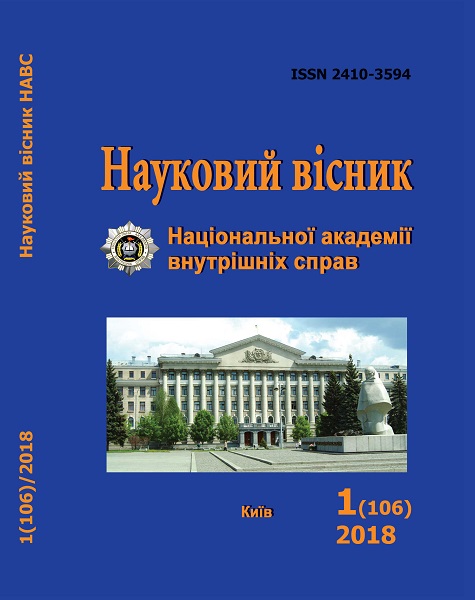The Right of the Nation for Self-Definition: Philosophical and Legal Measure
Abstract
The term «self-determination» in the legal literature is considered in two aspects. First, it is an inalienable right of every human community to freely set up its social and political life and to determine its form of government independently. Secondly, as a principle of the functioning of a social law based on natural law and a leading idea of liberalism, whose founders, recognizing the right of the society to self-determination and the establishment of rules of coexistence, emphasized that these rules should take into account as far as possible the rights and interests of each of its members.
Somewhat differently, the ideologists of nationalism understand the right to self-determination. Who preach loyalty and commitment to their nation, political independence, work for the benefit of their own people, and the unification of national consciousness to protect the living conditions of a nation, its territory of residence, economic resources and spiritual values, and is based on a national feeling that is related to.
Thus, it can be argued that the main distinction between self-determination in the sense of liberal and nationalist ideology is that under the former this right belongs to the population of a certain territorial entity, while the latter defends this right mainly for representatives of a certain nationality, for example, for the Russian-speaking community of Crimea or the south – European regions or Ukrainian-speaking population. As underlined in international legal acts one of the most difficult and acute problems of self-determination of peoples, nations have a national-territorial delineation, the most acceptable forms of implementation of which are separation and reunification.
Separation (secession) is a form of realization of the right to self-determination, which involves the withdrawal of a nation from the multinational form of education under the influence of the will of the people.
Reunification (incorporation – a form of realization of the right to self-determination, which involves the unification of peoples (nations) within a single state, in particular, in the form of autonomy, that is, the existence in the national administrative structure of the autonomous regions and provinces.
The right of the nation to self-determination in contemporary conditions should be exercised exclusively under the conditions of guaranteeing and real security of human rights, freedoms and legitimate interests. The absence of discrimination on any grounds, observance of the principle of the rule of law and the philosophical and legal doctrine of the primacy of universal values on the interests of the state. Promotion of the activities of civil society institutions in order to protect the population from arbitrariness of power and public control over strict laws by all state bodies agencies and organizations. In the field of foreign policy, the realization of the right of the nation to its own state is due to the adoption and observance of generally accepted international norms of conduct in relation to other states.
Downloads
Abstract views: 166 PDF Downloads: 116
- Authors reserve the right to authorship of their own work and transfer to the magazine the right of the first publication of this work under the terms of the Creative Commons Attribution License, which allows other persons to freely distribute published work with mandatory reference to authors of the original work and the first publication of an article in this magazine.
- Authors have the right to enter into separate additional agreements on non-exclusive dissemination of the work in the form in which it was published in the journal (for example, to post an article in the institution's repository or to publish as part of a monograph), provided that the link to the first publication of the work in this journal is maintained.
- The journal's policy allows and encourages the posting of articles by authors on the Internet (for example, in electronic storehouses of institutions or on personal websites), both before the submission of this manuscript to the editorial office and during its editorial processing, as this contributes to the creation of a productive scientific discussion and positively affects the efficiency and dynamics of citing the published work.




